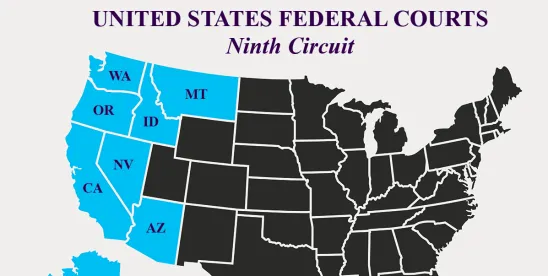The US Court of Appeals for the Ninth Circuit affirmed a district court’s denial of a motion to strike a putative class action suit brought under Section 425.16 of California’s anti-SLAPP statute, finding that the case fell under an exemption because it sought to enforce an important right under California law. Odette R. Batis v. Dun & Bradstreet Holdings, Inc., Case No. 23-15260 (9th Cir. July 8, 2024) (Clifton, Siler, Smith, JJ.)
Odette Batis filed a lawsuit against Dun & Bradstreet (D&B) arguing that their commercial use of her name and contact information in their searchable business-to-business database was a violation of her right of publicity and unfair competition laws and constituted tortious misappropriation of her name and likeness. Batis sought a declaration of infringement, injunctive relief, restitution and damages.
D&B moved to dismiss the lawsuit under California’s anti-SLAPP statute, which is intended to provide protection against “strategic lawsuits against public participation” and “lawsuits brought primarily to chill” the exercise of speech. The statute was enacted to protect nonprofit corporations and citizens from larger entities. D&B argued that Batis’s lawsuit arose from actions D&B took in furtherance of its right to free speech and thus should be struck. The district court concluded that Batis had a right to sue, and that D&B failed to establish that Batis’s lawsuit targeted protected speech. D&B appealed.
The Ninth Circuit upheld the district court’s decision, finding that the anti-SLAPP statute did not authorize a motion to strike the lawsuit. The Court found that Batis’s lawsuit fell under the public interest exemption contained in Section 425.17(b) of the California Code of Civil Procedure. The public interest exemption protects suits where:
- The plaintiff does not seek relief different from the rest of any class of which they are a member;
- The action would enforce an “important right affecting the public interest”;
- And “private enforcement is necessary and places a disproportionate financial burden on the plaintiff.”
The Ninth Circuit found that Batis’s lawsuit met these criteria. First, Batis did not seek any remedy on the face of the complaint that all members of the putative class would not have been entitled to as well. Second, Batis’s lawsuit implicated her privacy rights and rights concerning her name and likeness, both of which are considered important to the public interest, especially in California. Third, Batis’s financial burden in bringing the suit could outweigh the damages she might be able to collect, and no public entity had brought an action against D&B enforcing her rights.
Finally, the Ninth Circuit affirmed that the public interest exemption applied against D&B’s database because the database was not a protected work of expression under Section 425.17(d) of the Anti-SLAPP Act, which protects “a newspaper, magazine, or other periodical publication.” The Court explained that this protection was intended to apply to those engaged in the “dissemination of ideas or expression” rather than a directory. Therefore, Batis’s suit was protected under the public interest exception and immune to D&B’s anti-SLAPP motion.



 />i
/>i

